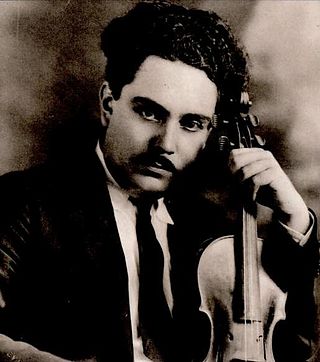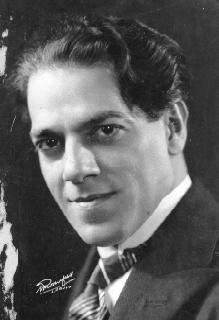
String Quartet No. 17 is the last of seventeen quartets by the Brazilian composer Heitor Villa-Lobos, and was written in 1957. A performance lasts approximately twenty minutes.

String Quartet No. 17 is the last of seventeen quartets by the Brazilian composer Heitor Villa-Lobos, and was written in 1957. A performance lasts approximately twenty minutes.

Villa-Lobos composed his Seventeenth Quartet in Rio de Janeiro in 1957. It was first performed by the Budapest String Quartet on 16 October 1959, at the Library of Congress in Washington, D.C., exactly one month before the composer's death. Villa-Lobos was too ill to attend. [1] He had given a copy of the score to the violinist Mariuccia Iacovino in Paris, before returning to Rio, mortally ill. He repeatedly asked her to arrange a reading of it, but adverse circumstances prevented this, and he died without knowing the premiere had already taken place: [2]
The quartet consists of the traditional four movements:
The first movement is in ternary, ABA form, rather than the expected sonata-allegro form, and has a long concluding coda of thirty-seven measures. [3]
The second movement is also in ternary form and has the character of the improvised instrumental serenade called a choro. [4]
The third movement is a traditional scherzo with trio, followed by a concluding coda. [5]
The finale breaks with traditional forms, offering instead a succession of three unrelated sections, a transition, and a recapitulation of the first half of section one, and an extended coda. [6]
Chronological, by date of recording.

Cuarteto Latinoamericano is a string quartet. Founded in Mexico in 1981, the Cuarteto has toured throughout Europe, the Americas, Israel, China, Japan, and New Zealand. They have premiered over one hundred works written for them. Winners of two Latin Grammy Awards for Best Classical Album, they have also been awarded the Diapason d'Or, the Mexican Music Critics Association Award, and three "Most Adventurous Programming" Awards from Chamber Music America.

Música de feria is a composition for string quartet by the Mexican composer and violinist Silvestre Revueltas, written in 1932. Though not so titled by the composer, it is sometimes referred to as his String Quartet No. 4. A performance lasts a little more than nine minutes.

String Quartet No. 1 by the Mexican composer and violinist Silvestre Revueltas was composed in 1930.

String Quartet No. 2 (Magueyes) is a chamber-music work by the Mexican composer and violinist Silvestre Revueltas from 1931. The score is dedicated to Aurora Murguía and a performance of it lasts between ten and eleven minutes.

String Quartet No. 1 is the first of seventeen works in the genre by the Brazilian composer Heitor Villa-Lobos, originally written in Nova Friburgo in 1915 and extensively revised in 1946. A performance lasts approximately eighteen minutes.

String Quartet No. 2 is the one of a series of seventeen works in the genre by the Brazilian composer Heitor Villa-Lobos, and was written in 1915. A performance lasts approximately twenty minutes.

String Quartet No. 3 is the third of seventeen works in the medium by the Brazilian composer Heitor Villa-Lobos, and was written in 1916. A performance lasts approximately twenty-three minutes.

String Quartet No. 4 is the fourth of seventeen works in the genre by the Brazilian composer Heitor Villa-Lobos, written in 1917 and revised in 1949. A performance lasts approximately 23 minutes.

String Quartet No. 5 is the fifth of seventeen works in the genre by the Brazilian composer Heitor Villa-Lobos, written in 1931. A performance lasts approximately 17 minutes.

String Quartet No. 6 ("Brazilian") is one of seventeen works in the genre by the Brazilian composer Heitor Villa-Lobos, and was written in 1938, in between his early and late periods. Villa-Lobos considered naming it "Quartet Popular No. 2" as opposed to "Brazilian," and while the work is indeed one of his more nationalist pieces, it also bears direct connections to the Viennese tradition of string quartet composition. A performance lasts approximately 24 minutes.

String Quartet No. 7 is the seventh of seventeen works in the genre by the Brazilian composer Heitor Villa-Lobos, written in 1942. With a performance lasting approximately 37 minutes, it is the longest of Villa-Lobos's string quartets

String Quartet No. 8 is one of seventeen works in the genre by the Brazilian composer Heitor Villa-Lobos, written in 1944. A performance lasts approximately twenty-five minutes.

String Quartet No. 9 is part of a series of seventeen works in the medium by the Brazilian composer Heitor Villa-Lobos, and was written in 1945. A performance lasts approximately 25 minutes.

String Quartet No. 10 is one of a series of seventeen works in the genre by the Brazilian composer Heitor Villa-Lobos, and was written in 1946. A performance lasts approximately 23 minutes.

String Quartet No. 11 is a 1947 string quartet, part of a 17-work series in the medium by Brazilian composer Heitor Villa-Lobos. A performance lasts approximately 27 minutes.

String Quartet No. 12 is the part of a series of seventeen works in the genre by the Brazilian composer Heitor Villa-Lobos, and was written in 1950. A performance lasts approximately twenty-two minutes.

String Quartet No. 13 is one of a series of seventeen works in the medium by the Brazilian composer Heitor Villa-Lobos, and was written in 1951. A performance of it lasts approximately twenty minutes.

String Quartet No. 14 is the one of a series of seventeen works in the medium by the Brazilian composer Heitor Villa-Lobos, and was written in 1953. A performance lasts approximately seventeen minutes.

String Quartet No. 15 is one of a series of seventeen works in the medium by the Brazilian composer Heitor Villa-Lobos, and was written in 1954. A performance lasts approximately nineteen minutes.

String Quartet No. 16 is the penultimate of seventeen quartets by the Brazilian composer Heitor Villa-Lobos, and was written in 1955. A performance lasts approximately twenty minutes.